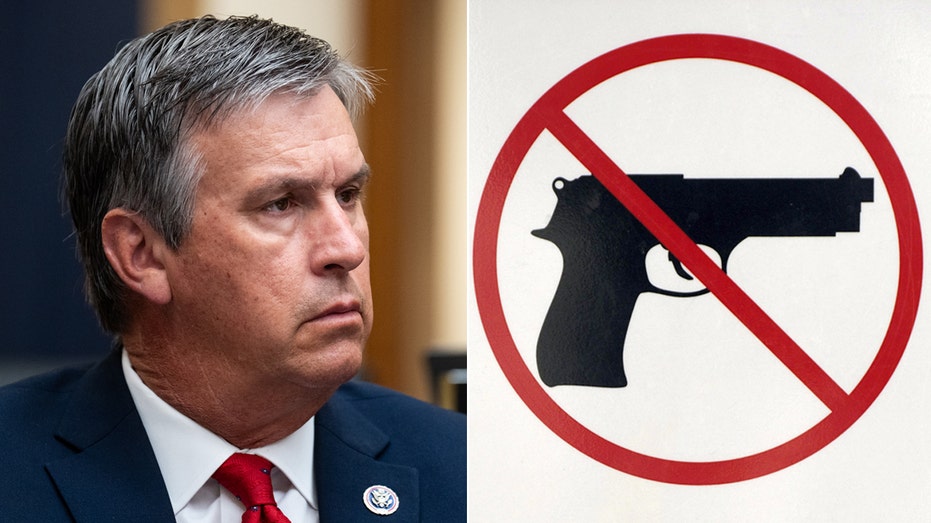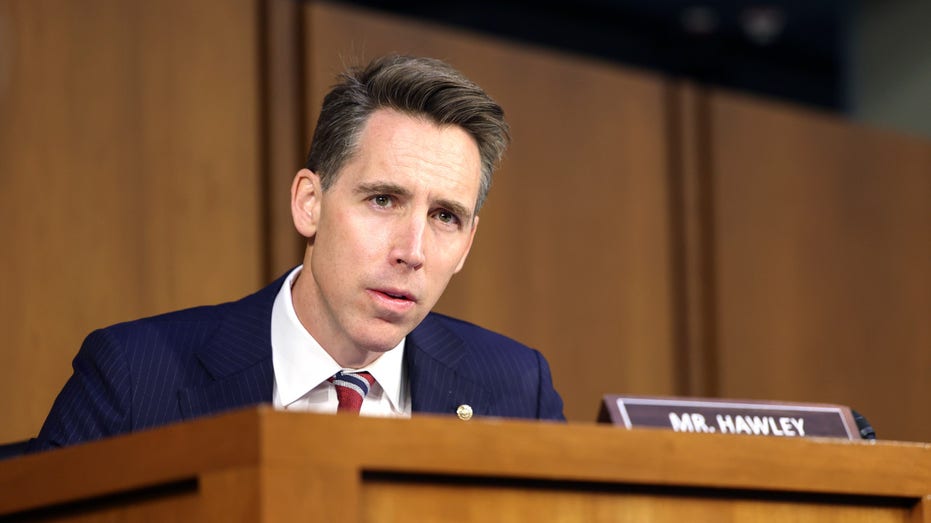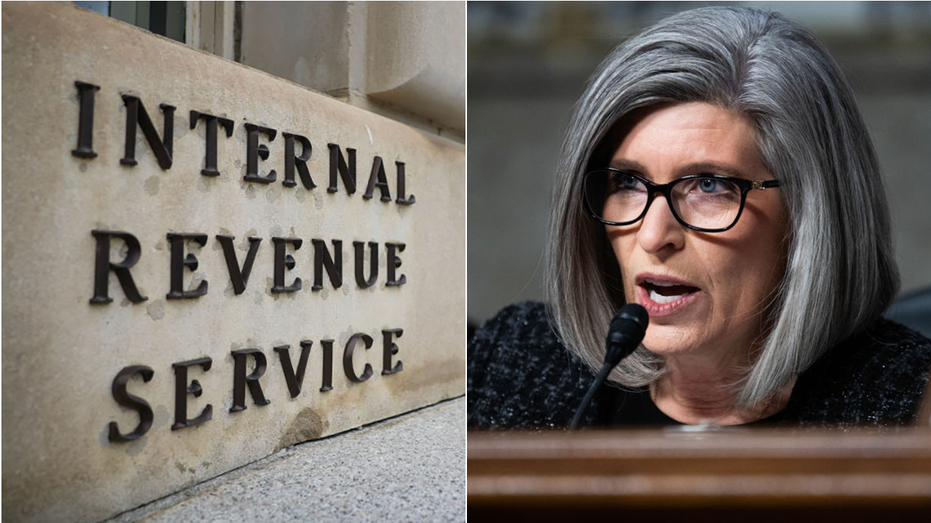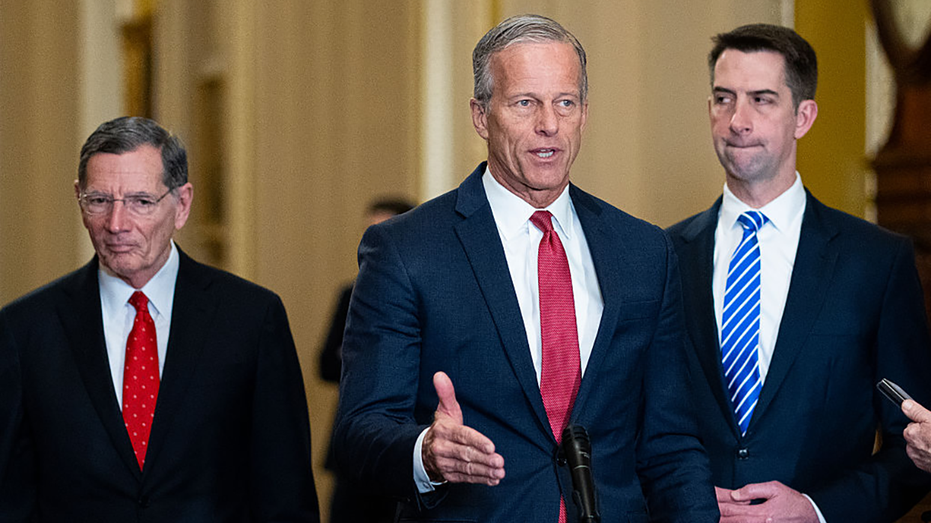EXCLUSIVE: Former Vice President Mike Pence is urging House Republicans to stand firm against hiking takes on the country's top-earners, as sources tell Fox News Digital the White House is floating a millionaire tax hike proposal to offset the cost of eliminating taxes on overtime pay, tipped wages and retirees' Social Security.
Advancing American Freedom (AAF), the conservative policy advocacy group Pence launched in 2021, sent a letter to congressional Republicans, including House Ways and Means Committee Chairman Rep. Jason Smith, R-Mo., and Senate Finance Committee Chairman Sen. Mike Crapo, R-Idaho, advising Congress to "stand firm against tax hikes."
"President Trump and Republicans in Congress promised to make the Tax Cuts and Jobs Act permanent and work to secure further tax cuts. Republicans should stick to their promises and not pull pages from Kamala Harris’ losing policy platform," AAF President Tim Chapman and Board Chairman Marc Short wrote in the letter, referring to Trump's 2017 Tax Cuts and Jobs Act, which is set to expire this year.
"The American people voted for tax cuts, not tax hikes. Advancing American Freedom calls on Republicans to swiftly renew the across-the-board tax cuts that unleashed prosperity during President Trump’s first term and deliver on the promise to make America prosperous again," they wrote.
Pence added in a statement to Fox News Digital, "The Trump-Pence tax cuts lowered taxes across the board – for working families and businesses large and small. The results were historic. We got America’s economy booming like never before and created more opportunity for all Americans. Republicans know that less taxes mean more jobs."
HAWLEY URGES REPUBLICANS TO CUT TAXES FOR WORKING-CLASS VOTERS WHO 'PUT TRUMP IN THE WHITE HOUSE'
Two sources familiar with the discussions told Fox News Digital that White House aides have been quietly floating a proposal to House Republicans that would raise the tax rate for people making more than $1 million to 40%. The plan is intended to mitigate the cost of Trump's ambitious 2024 campaign promise to cut taxes on overtime pay, tipped wages and retirees' Social Security.
The sources stressed the discussions were only preliminary, and the plan is one of many being discussed as congressional Republicans work on advancing Trump's "big, beautiful bill."
Pence responded to Fox News Digital's reporting on Wednesday, urging House Republicans to resist tax increases on the wealthy.
"Republicans Don’t Raise Taxes. Republicans Cut Taxes," Pence responded on X. "Raising the Top Marginal Rate would be a Huge Tax Increase on Small Business America."
Pence has often criticized Trump's policies during his second term, most recently critiquing Trump's tariff uncertainty, arguing even 10% tariffs would drive inflation higher and hurt American families. In a call for limited government, Pence also advocated for Congress to reclaim their authority over tariffs during remarks this week.
Trump's former vice president refused to endorse him in 2024. Pence, who himself launched a short-lived 2024 presidential campaign, unexpectedly dropped out of the race for the White House during remarks at the Republican Jewish Coalition's annual event in Las Vegas in October 2023. Trump spoke on the same stage soon after Pence's announcement without acknowledging the news.
However, Trump and Pence were seen shaking hands at former President Jimmy Carter's funeral in December – their first public appearance together in nearly four years. Pence congratulated Trump on winning the 2024 election, despite refusing to endorse him.
Pence has distanced himself from his former boss since the riot at the U.S. Capitol on Jan. 6, 2021, when Pence defied Trump's wishes by affirming that former President Joe Biden rightly won the 2020 election. Rioters called for Pence to be hanged, and the former vice president has faced the ire of Trump's most loyal supporters ever since.
The former vice president's campaign failed to gain traction as Trump's lead over the crowded Republican Party widened, and Republican voters proved they had not forgotten Pence's "disloyalty" to Trump during the attacks on the U.S. Capitol.
Pence ran on a traditional conservative platform, framing the future of the Republican Party against what he called the rise of "populism" in the party. Among the slim anti-Trump base of the Republican Party, Pence received praise for his courage on that day. As Pence campaigned in Iowa and New Hampshire, voters at town halls often thanked Pence for standing up to Trump.
CLICK HERE TO GET THE FOX NEWS APP
"Mike Pence stood for the Constitution. He deserves, not grudging credit. He deserves our thanks as Americans for putting his oath of office and the Constitution of the United States before personal, political and unfair pressure," former Gov. Chris Christie, R-N.J., the candidate who rejected Trump most during the Republican primary, said on the debate stage.
The White House did not respond to Fox News Digital's request for comment by deadline.

:max_bytes(150000):strip_icc():format(jpeg)/GettyImages-1355333257-a106b721a07f4420b0593344e1d942fe.jpg)

:max_bytes(150000):strip_icc():format(jpeg)/GettyImages-98479349-febb72a1fd0644688637dc66fc80cf8a.jpg)
:max_bytes(150000):strip_icc():format(jpeg)/GettyImages-171061469-58871a3e3df78c2ccdc06a06.jpg)





:max_bytes(150000):strip_icc():format(jpeg)/GettyImages-200145760-001-b06a56a7d1734c44845e52159c8b2eda.jpg)



:max_bytes(150000):strip_icc():format(jpeg)/GettyImages-2178940795-5762da3c65e8478c83b2c9a1448e201d.jpg)
